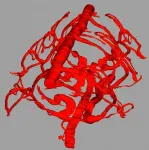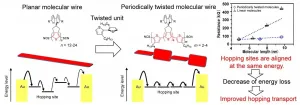Stopping RAS inhibitors tied to worse outcomes in patients with chronic kidney disease
2021-01-02
(Press-News.org) Small studies have suggested that a group of medications called RAS inhibitors may be harmful in persons with advanced chronic kidney disease, and physicians therefore often stop the treatment in such patients. Researchers at Karolinska Institutet now show that although stopping the treatment is linked to a lower risk of requiring dialysis, it is also linked to a higher risk of cardiovascular events and death. The results are published in The Journal of the American Society of Nephrology.
Chronic kidney disease (CKD) affects approximately ten percent of the global population. Hypertension is the most common comorbidity. Patients with CKD have an increased risk of cardiovascular disease and death.
Advanced chronic kidney disease is classified as 'severely decreased kidney function' and is defined as the kidney's ability to clean the blood being less than approximately 30 percent of normal for a young adult. In some patients, CKD progresses to the point that dialysis or transplantation is required as a kidney replacement therapy to prolong life.
Renin-angiotensin system inhibitors (RAS inhibitors), including both ACE inhibitors (ending in 'pril') and ARBs (ending in 'sartan'), are common medications for the treatment of hypertension, cardiovascular disease, heart failure and CKD. However, not enough is known about their efficacy and safety in patients with advanced CKD, since this population was underrepresented in the landmark randomised trials.
"Small-scale studies have suggested that stopping RAS inhibitors in these patients may improve kidney function and delay the need for kidney replacement therapy," says Edouard Fu, MD and PhD Candidate at the Department of Clinical Epidemiology, Leiden University Medical Center and the study's first author. "However, stopping these medications may also increase the risk of heart attacks, stroke and death. We wanted to help practitioners by evaluating the risks and benefits of this decision, and Swedish Quality Registers are uniquely suited to answer this question."
Researchers at Karolinska Institutet and collaborators have conducted an epidemiological study using data from the Swedish Renal Registry to evaluate over 10,000 patients with advanced CKD who received RAS inhibitors over the past decade.
Comparing morbidity and mortality rates in patients whose treatment was discontinued with those who continued the drug regimen, the researchers found that discontinuing these medications was associated with an eight percent lower risk of requiring kidney replacement therapy.
However, discontinuing was also linked to a thirteen percent higher risk of death at five years, and a twelve percent higher risk of suffering a heart attack or stroke.
"The use of RAS inhibitors in patients with advanced CKD is controversial, and many doctors deprescribe them," says principal investigator Juan Jesus Carrero, professor at the Department of Medical Epidemiology and Biostatistics at Karolinska Institutet in Sweden. "Rather than routinely discontinuing treatment, our results show that the issue is a complex one and that doctors must carefully weigh the protective effects of RAS inhibitors on the cardiovascular system against the potential harms on the kidneys. Until clinical trials are performed, this evidence supports continued use of this lifesaving therapy in patients with advanced CKD who are doing well on the medications."
He points out that sometimes these medications may have to be stopped for other reasons, for example, if patients have persistently high blood potassium levels that don't respond to management.
INFORMATION:
The study was conducted in collaboration with Leiden University Medical Center (the Netherlands), McMaster University (Canada) and the London School of Hygiene and Tropical Medicine (UK). It was supported by grants from the Swedish Research Council, the Swedish Heart and Lung Foundation, and the Westman Foundation. Some of the authors receive funding and honoraria from pharmaceutical companies for issues unrelated to this study; the scientific paper lists potential conflicts of interest in full.
Publication: "Stopping renin-angiotensin system inhibitors in patients with advanced CKD and risk of adverse outcomes: a nationwide study". Edouard L. Fu, Marie Evans, Catherine M. Clase, Laurie A. Tomlinson, Merel van Diepen, Friedo W. Dekker, Juan J. Carrero. Journal of the American Society of Nephrology, online December 28 2020, doi: 10.1681/ASN.2020050682.
[Attachments] See images for this press release:

ELSE PRESS RELEASES FROM THIS DATE:
2021-01-02
Scientific articles in the field of physics are mostly very short and deal with a very restricted topic. A remarkable exception to this is an article published recently by physicists from the Universities of Münster and Düsseldorf. The article is 127 pages long, cites a total of 1075 sources and deals with a wide range of branches of physics - from biophysics to quantum mechanics.
The article is a so-called review article and was written by physicists Michael te Vrugt and Prof. Raphael Wittkowski from the Institute of Theoretical Physics and the Center for Soft Nanoscience at the University of Münster, together with ...
2021-01-02
Although plants are anchored to the ground, they spend most of their lifetime swinging in the wind. Like animals, plants have 'molecular switches' on the surface of their cells that transduce a mechanical signal into an electrical one in milliseconds. In animals, sound vibrations activate 'molecular switches' located in the ear. Scientists from the CNRS, INRAE, Ecole Polytechnique, Université Paris-Saclay and Université Clermont-Auvergne (1) have found that in plants, rapid oscillations of stems and leaves ...
2021-01-02
How can cells adhere to surfaces and move on them? This is a question which was investigated by an international team of researchers headed by Prof. Michael Hippler from the University of Münster and Prof. Kaiyao Huang from the Institute of Hydrobiology (Chinese Academy of Sciences, Wuhan, China). The researchers used the green alga Chlamydomonas reinhardtii as their model organism. They manipulated the alga by altering the sugar modifications in proteins on the cell surface. As a result, they were able to alter the cellular surface adhesion, also known as adhesion force. The results have now been published in the ...
2021-01-02
Thanks to the marine worm Platynereis dumerilii, an animal whose genes have evolved very slowly, scientists from CNRS, Université de Paris and Sorbonne Université, in association with others at the University of Saint Petersburg and the University of Rio de Janeiro, have shown that while haemoglobin appeared independently in several species, it actually descends from a single gene transmitted to all by their last common ancestor. These findings were published on 29 December 2020 in BMC Evolutionary Biology.
Having red blood is not peculiar to humans or mammals. ...
2021-01-02
Osaka, Japan - Researchers at Osaka University synthesized twisted molecular wires just one molecule thick that can conduct electricity with less resistance compared with previous devices. This work may lead to carbon-based electronic devices that require fewer toxic materials or harsh processing methods.
Organic conductors, which are carbon-based materials that can conduct electricity, are an exciting new technology. Compared with conventional silicon electronics, organic conductors can be synthesized more easily, and can even be made into molecular wires. However, these structures suffer from reduced electrical conductivity, which prevents ...
2021-01-02
After "COVID-19," the term that most people will remember best from 2020 is likely to be "social distancing." While it most commonly applied to social gatherings with family and friends, it has impacted the way many receive medical care. Historically, the United States has been relatively slow to broadly adopt telemedicine, largely emphasizing in-person visits.
However, the COVID-19 pandemic, especially in the spring of 2020, necessitated increased use of virtual or phone call visits, even prompting the Center for Medicare and Medicaid Services (CMS) to relax some of its regulations, primarily for video-based ...
2021-01-02
N-Aryl-C-nitroazoles are an important class of heterocyclic compounds. They are used as pesticides and fungicides. However, these substances could be toxic to humans and cause mutations. As they are not frequently used, there is little data about them in the medicinal chemistry literature. However, it has been suggested recently that the groups of compounds that are traditionally avoided can help to fight pathogenic bacteria. Yet, to reduce toxic effects, a great amount of work must be carried out at the molecular level, ...
2021-01-02
The flag leaf is the last to emerge, indicating the transition from crop growth to grain production. Photosynthesis in this leaf provides the majority of the carbohydrates needed for grain filling--so it is the most important leaf for yield potential. A team from the University of Illinois and the International Rice Research Institute (IRRI) found that some flag leaves of different varieties of rice transform light and carbon dioxide into carbohydrates better than others. This finding could potentially open new opportunities for breeding higher yielding rice varieties.
Published ...
2021-01-02
In a study that looked at suicide deaths during 2020's first wave of the COVID-19 pandemic in Maryland, Johns Hopkins Medicine researchers found that, contrary to general predictions of suicides skyrocketing, suicides in the overall population actually dropped, relative to previous years. However, the researchers also discovered that suicide deaths increased dramatically among Black Marylanders during the same period.
The researchers say that their findings, published Dec. 16, 2020, in JAMA Psychiatry, highlight the importance of timely identification of high-risk groups and vulnerable populations to reduce suicide numbers.
Black Americans have been ...
2021-01-02
LOS ANGELES -- Scientists from the UCLA Jonsson Comprehensive Cancer Center have developed a simple, high-throughput method for transferring isolated mitochondria and their associated mitochondrial DNA into mammalian cells. This approach enables researchers to tailor a key genetic component of cells, to study and potentially treat debilitating diseases such as cancer, diabetes and metabolic disorders.
A study, published today in the journal Cell Reports, describes how the new UCLA-developed device, called MitoPunch, transfers mitochondria into 100,000 or more recipient cells simultaneously, which is a significant improvement from existing mitochondrial transfer technologies. The device is ...
LAST 30 PRESS RELEASES:
[Press-News.org] Stopping RAS inhibitors tied to worse outcomes in patients with chronic kidney disease




